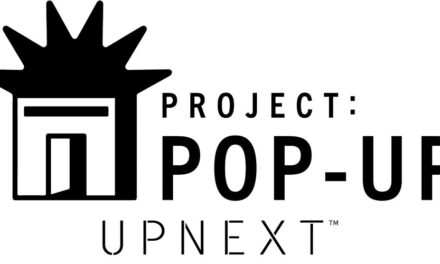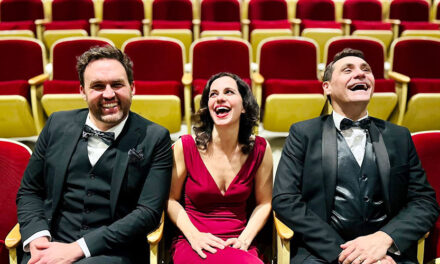
VICTORIA REARDON was all smiles as she gets ready to graduate from Melrose High May 29. (Donna Larsson Photo)
MELROSE — On the best of days, 225 members of the Class of 2015 graduated from Melrose High May 29 during the annual commencement exercise at Fred Green Memorial Field.
The graduates, decked out in traditional caps and gowns, were in a celebratory mood before, during and after the event.
Class Valedictorian Katherine Ilia, addressing fellow graduates, family and friends, said, “(L)ooking back on these past four years, I’ve learned some important lessons, the most meaningful of which involved discovering the crucial difference between relative success and absolute success.
“Relative success entails defining yourself by ranking your performance against that of others. It grades everyone on a one-size-fits-all index, missing the fundamental point that, in life, people’s motivations and abilities are just as focal as results. Absolute success, on the other hand, means rating yourself based on what you want to achieve and what you are capable of accomplishing in the present given your potential; it is relative to the “now” and to the “what.” This metric is adjusted for long-run growth and concentrates on the value of taking strides to become a better version of yourself.
“There will always be someone who ranks higher, if that even matters, so our goal shouldn’t be simply to out-do that person. Instead, we should focus on out-doing the future us, continuously raising the bar. Rather than being satisfied with an 80 out of 100 because it’s higher than everyone else’s grade, we should aim for the maximum and see how far we can get. We’ll notice more gains if we overshoot the target instead of if we merely try to get by.
“However, we need to remember that we can’t have this attitude all the time. Whenever we feel pressured to excel at everything, let’s remember that Snoop Dogg dropped a reggae album and it wasn’t hot. While it’s wholesome to have a wide range of interests and hobbies, it’s more fulfilling to find something that we’re passionate about and run with it because that’s the only way we can truly achieve absolute success: By being motivated to improve ourselves through doing what we love,” Ilia concluded.
Supt. of Schools Cyndy Taymore said, “Public education in 2015 is battered and buffeted by more change than any time in its history. We are faced constantly with new expectations for students and staff. We struggle with how to implement student centered learning, performance tasks, differentiation, instructional technology, project based learning, blended learning and much much more. Underlying all this rapid change is the belief that all students need to be “college and career ready” as they enter the next stage of their lives. All students need to be provided with the knowledge and skills they will need to be successful, productive and thoughtful adults. Yet, given the rapid changes not only in education but also in our society and economy, how do we prepare them for the unknown?
“Ironically, the answer is a traditional cliché: Be lifelong learners. However, life long learning for this generation is quite different from the life long learning in which many of us engage. We read, attend lectures and participate in enriching activities, such as music, art and theater. For many of us, life long learning is often a leisurely pursuit.
“For this and future generations, life long learning will be a necessity. Why? Because the rate of change in our world has accelerated beyond anything we ever expected. Think about it. Think about your own educational experience compared to your children’s. Think about your own profession and job experience and how that has changed since you first entered the workforce.
“Last week, The New York Times online ran an article, “What to Learn in College to Stay One Step Ahead of Computers.” The author, Robert Shiller, posed the question, “What can young people learn now that won’t be superseded within their lifetime by [computers and robots] and that will secure them good jobs and solid incomes over the next 20, 30 or 50 years?” He did not have a definitive answer, as it is a dilemma that higher education has not yet resolved.
“Yet I have great faith that our children will be able to meet this challenge. The goal of the many educational changes I mentioned earlier is to develop independent learners who can identify their individual educational needs and who know how to access the resources and information they need. This generation and future generations are engaged in highly personalized learning: They learn what they want, when they want. As learners, they are not confined by space or time. They are not limited to specific topics and textbooks. They embrace what Scott McLeod calls “disruptive innovation.” Our children accept constant change as fundamental and turn those very changes into tools for their own learning and success. More importantly, they are open and accepting of new people and experiences. They are wonderfully comfortable with who they are as a people. And they believe they can master anything that comes their way.
“So while the adults may find this moment bittersweet, the graduates are ready, rushing forward to embrace the many changes they will encounter in the future years. I hope you never lose that enthusiasm and confidence. And I hope that you never stop learning and growing. This has been a truly wonderful class. We will miss you and hope all your dreams come true,” Taymore explained.
Setting the tone for last Friday’s graduation, Class President Amanda Sampson said, “Here before me in this very audience we have artists, athletes, scholars, musicians, leaders. Even though we are all so different, we have all leaned on others to get to where we are today. If high school has taught you anything it should be this: Although your talents and accomplishments are important, they will get you nowhere if you are not a caring person. So allow others to lean on you as you lean on them and show the world that you are willing to care, take chances and make memories. Thank you Melrose High and I wish my fellow graduates the best of luck.”




